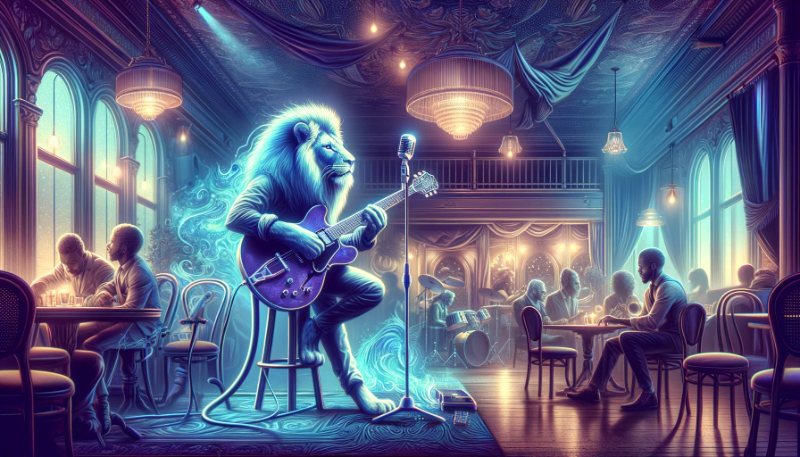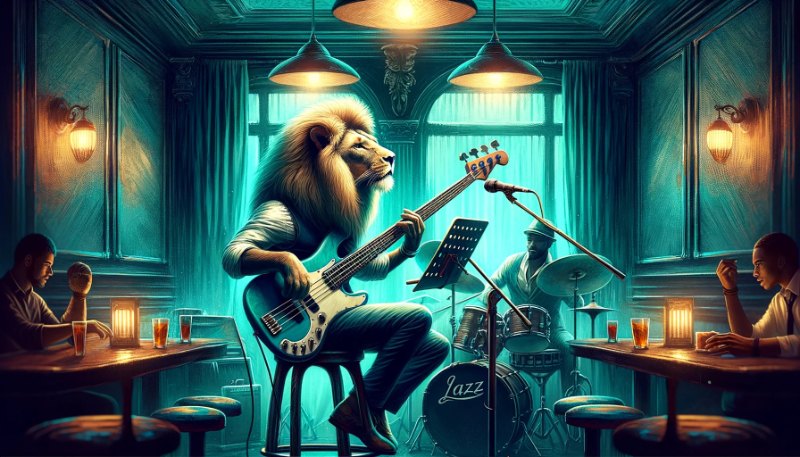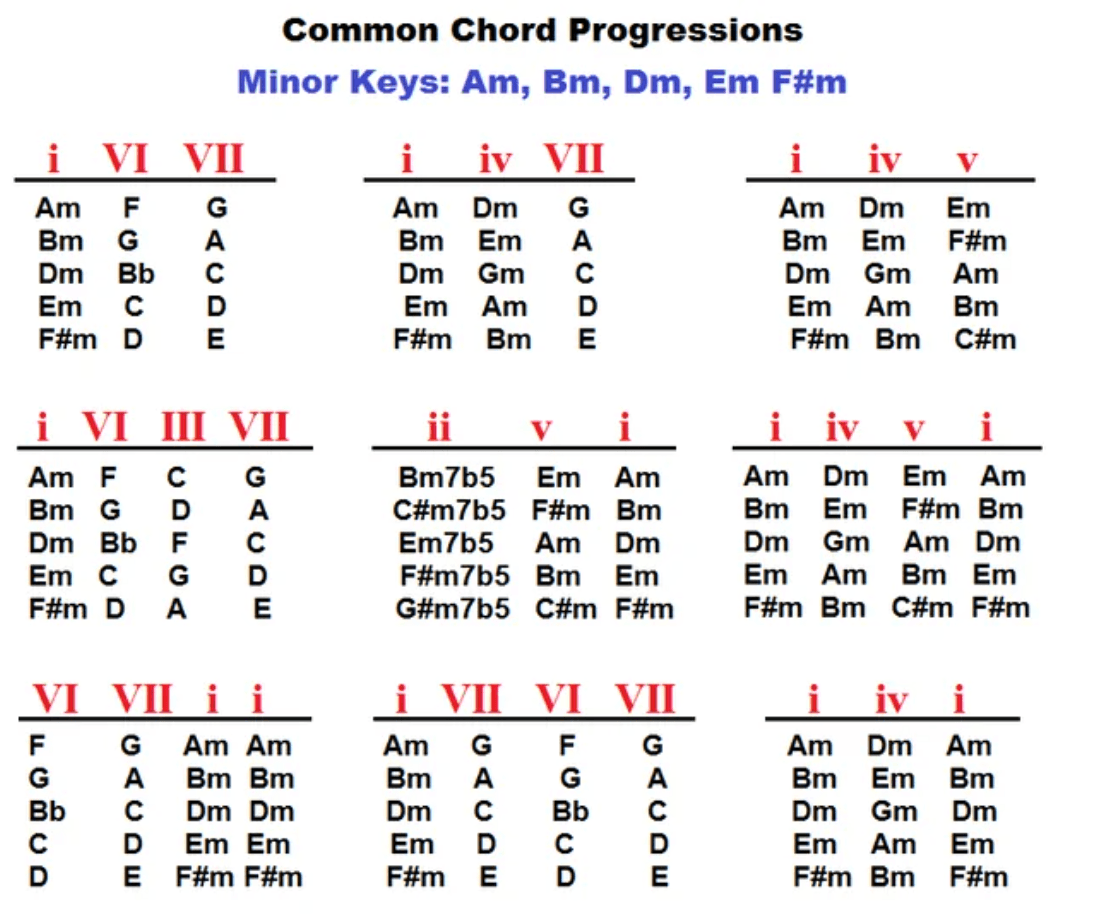In the dynamic world of live music, AI is redefining performance possibilities. This article delves into how AI tools are transforming concerts, offering innovative enhancements!

AI in Live Music: Technical Aspects
AI in live music utilizes sophisticated algorithms to enhance performance quality significantly.
These advancements include real-time audio processing, adaptive lighting systems, and smart instrument technology.
AI also offers personalized setlist creation, intelligent stage design, and dynamic audience interaction, transforming live performances into more immersive experiences.
This evolution in AI technology reflects a profound shift in the capabilities and possibilities for live music, melding creativity with technological innovation.
Some of its application includes:
- Personalized Setlists: AI analyzes data from streaming services to create setlists that resonate with the audience's preferences, ensuring a more engaging performance.
- Intelligent Lighting: AI-powered lighting systems sync with the music, creating a visually stunning experience. These systems can change in time with the beat, melody, or even respond to the performer’s movements.
- Realistic Virtual Backgrounds: Performers can use AI to project immersive, otherworldly environments, enhancing the audience's experience with augmented reality.
- Smart Instruments: AI-driven instruments, like self-tuning guitars, adapt their settings in real-time to suit the performer's style, enhancing the overall sound of live performances.
Realistic Applications of AI in Concerts
AI has transcended experimental stages and is now firmly embedded in concert experiences.
This section delves into practical applications where AI significantly enhances live performances, transforming stage design, choreography, production, and creating immersive experiences.
Explore the real-world impact of AI in the concert industry.
1. Transforming Stage Design
Using AI in the processing and interpretation of performance data, we can create dynamic visuals that complement the narrative.
This technology can shape stage aesthetics by generating visually stimulating elements in sync with the music, adding depth and richness to the audience's experience.
AI's potential role in stage design demonstrates how technology can enhance the artistic expression of live performances.
2. Choreography and Audience Interaction
AI can be used to also analyze movement, facilitating the creation of an innovative choreography. It provides a precise understanding of performers' actions and translates this data into creative dance routines.
Moreover, AI contributes to audience interaction by enabling immersive experiences that bridge the gap between artists and spectators.
Through interactive technologies and real-time feedback, audiences can actively participate in the performance, enhancing their engagement and connection with the show.
3. Behind the Scenes
Behind the scenes, AI can be used to enhance stage lighting, ensuring that the visual aspects of the performance align with the music and mood. Additionally, AI optimizes various event management processes, such as ticketing and crowd control.
It streamlines ticket sales through smart algorithms, making it easier for attendees to purchase tickets and access the event.
Moreover, AI aids in crowd control by monitoring and managing the flow of audience members, ensuring a safe and enjoyable experience for everyone involved.
4. Immersive Experiences
Through VR/AR, live shows can transport spectators to fantastical realms, providing a sense of presence and engagement like never before. Musicians can utilize AI-powered interactive narratives to establish stronger connections with their audience.
Furthermore, when AI-enhanced visuals and effects are integrated with VR/AR, they introduce an additional level of enthusiasm and engagement.
This points toward a future in which live performances break free from conventional constraints, delivering multi-sensory experiences.
5. Dynamic Setlist Adaptation
One striking application of AI in live performances involves real-time setlist adaptation based on audience reactions.
AI algorithms, coupled with sentiment analysis, monitor the crowd's emotional responses and adjust the setlist accordingly.
This ensures that the audience remains engaged and connected with the performance, creating a unique and tailored experience for each concert-goer.
6. Real-Time Sound Engineering
AI-powered tools have revolutionized sound engineering during live concerts.
Sound engineers now harness AI algorithms that continuously analyze and optimize sound mixing and effects in real-time.
This dynamic adjustment guarantees impeccable audio quality throughout the entire performance, regardless of venue acoustics or external factors.
7. Interactive Visuals
Incorporating AI-driven interactive visuals is another remarkable trend in live music. AI algorithms enable the synchronization of visuals with the music, creating a visually immersive experience.
From responsive light displays to real-time visual effects that mirror the musical journey, AI has elevated the visual aspect of live performances.
8. Predictive Insights
AI's predictive capabilities are leveraged to anticipate audience preferences and trends.
By analyzing vast amounts of data, AI helps artists make informed decisions about their setlist, lighting, and stage design, ensuring that each performance resonates with the audience.
9. AI-Driven Chatbots
AI-driven chatbots and virtual assistants are deployed in live concerts to engage with the audience.
These digital entities can answer queries, provide event details, and even accept song requests, fostering personalized and interactive experiences.
Real-time analysis of social media and audience feedback via AI enables performers to make instant adjustments during the show, tailoring the performance to audience preferences and reactions.
10. Inclusivity and Accessibility
AI-driven live performances extend inclusivity to all.
AI-powered sign language interpreters and real-time captioning enhance accessibility, making live music events more enjoyable for individuals with hearing impairments.
AI in Action: Live Performance Examples
In recent times, the incorporation of AI into live music performances has brought forth a fresh era of artistic innovation and heightened audience involvement.
Musicians and forward-thinking tech enthusiasts have utilized AI's capabilities to craft one-of-a-kind and dynamically engaging live shows.
From real-time setlist adaptations based on audience reactions to AI-enhanced sound engineering, these live performance examples illustrate how AI is transforming the way we experience music in a live setting.
Here some remarkable instances where AI has taken center stage in the world of live music.
1. Taryn Southern's AI-Generated Album:
Singer-songwriter Taryn Southern collaborated with AI tools to compose her album "I AM AI." The AI generated melodies, lyrics, and rhythms, demonstrating the potential for AI to contribute creatively to music.
2. Holly Herndon's "Spawn" AI Ensemble:
Musician Holly Herndon employed AI to create an AI ensemble called "Spawn." This system generates live vocal accompaniments, adding a unique layer of AI-generated vocalizations to her performances.
3. K-pop Group AI-Enhanced Performances:
Some K-pop groups incorporate AI-generated holograms and visuals into their live concerts. These AI-powered visuals interact with the performers on stage, creating visually stunning and dynamic performances.
4. Endlesss Collaborative Jamming:
The music platform Endlesss uses AI to enable collaborative jamming sessions in real-time. Musicians from around the world can join in, creating unique live performances.
Also: Read more about the Top Emerging AI Music Artists!
Ethics in AI-Generated Content
In the realm of AI-generated content, ethical considerations play a pivotal role. The responsible use of AI algorithms is imperative, particularly in preventing bias and promoting inclusivity.
Let's explore the ethical aspects that underpin AI-generated content and the importance of maintaining fairness and representation.

Guarding Against Bias
AI algorithms are not devoid of biases; they can inadvertently perpetuate or even exacerbate existing societal biases.
Recognizing this, the development and deployment of AI in content creation demand rigorous scrutiny.
Developers must take proactive measures to identify and rectify biases in training data, ensuring that AI-generated content is free from discriminatory tendencies.
Ensuring Inclusivity
Inclusivity is another vital ethical dimension. AI-generated content should cater to diverse audiences, encompassing a wide range of cultural, ethnic, and demographic backgrounds.
The responsible use of AI tools involves actively striving to make AI-generated content accessible and relatable to all, avoiding stereotypes and exclusionary narratives.
Transparency and Accountability
Ethical guidelines in AI content creation emphasize transparency and accountability. Developers and content creators must provide clear disclosures when AI is involved in content generation.
Users have the right to know when they are interacting with AI-generated content, fostering trust and informed engagement.
Regulatory Frameworks
The ethical landscape of AI-generated content is rapidly evolving, prompting the need for regulatory frameworks.
Governments and industry bodies are considering guidelines and policies to ensure responsible AI use. These frameworks aim to strike a balance between innovation and safeguarding ethical principles.
Ongoing Ethical Assessment
Ethical considerations are not static but require ongoing assessment. As AI technology evolves, so do the ethical challenges.
Continuous monitoring, evaluation, and adaptation of ethical standards are essential to navigate the ever-changing landscape of AI-generated content.
Empower Your Music with Empress
While the essence of music creation remains unchanged, tools like Empress offer a valuable extension to the artist's toolkit. It's not just about efficiency; but about opening new avenues of creativity. Ready to revolutionize your songwriting process? Embrace the power of AI with Empress, and watch your musical visions come to life like never before!
FAQs: AI in Live Performances
Q1: How does AI enhance live music performances?
AI improves performances by providing dynamic lighting, sound optimization, and real-time audience analysis for a more immersive experience.
Q2: Can AI tools generate music during live performances?
Yes, AI can suggest melodies and harmonies, offering creative support to artists in real-time.
Q3: Does using AI in concerts reduce the need for human sound technicians?
No, AI complements technicians' work, aiding in sound optimization but not replacing their expertise.
Q4: Will AI change the way audiences experience concerts?
Absolutely, AI contributes to a more personalized and engaging concert experience through enhanced visuals and sound.
Q5: Is AI in live performances only for large-scale concerts?
No, AI tools are scalable and can enhance both small gigs and large concerts.
Follow the future of music with Empress. Check out our blog to learn how you can effectively use these AI music tools.


